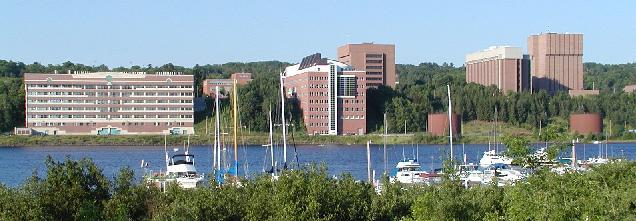

NEAR SURFACE GEOPHYSICS IMAGES GENERATED WITH MATLAB AND SEISMIC UNIX
Seismic Unix is a set of coordinated programs from Colorado School
of Mines Center for Wave Propagation. The programs run on Unix or Linux
operrating systems. I use Seismic Unix to display and analyze both
shallow seismic ground penetrating radar data. Click
here for Seismic Unix homepage.
Near Surface Geophysics is geophysics applied to the shallow depths, typically depths less than 100 meters or 300 ft. There is lots of information on the web about this subject. Professional orgainzations include the Environmental and Engineering Geophysics Society and the Near-Surface Geophysics Section of the Society of Exploration Geophysicists .
Other near surface geophysical interpretations.
This page was created by Dr. Charles T. Young, Associate Professor of Geophysical Engineering at Michigan Technological University. You can contact him at ctyoung@mtu.edu. Details of the Matlab programs or data can be provided upon request.
The examples here are from research and from course work with
students.
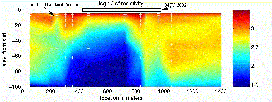
Matlab image of resistivity
cross section crossing San Andreas Fault, California.
cd
Matlab image of specialized resistivity surveys can monitor groundwater
tracer tests without drilling monitor wells
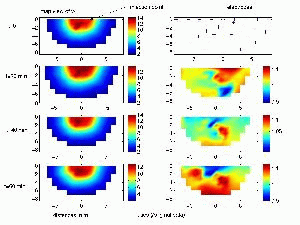
Matlab images of a tracer test
monitored by specialized electrical resistivity measurements.
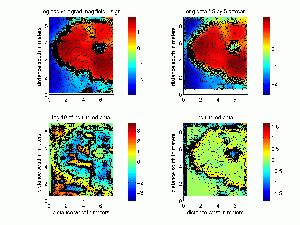
Seismic Unix images of ground penetrating radar (GPR) surveys
locating a buried stream channel, an ancient lake bottom, and
buried sand dunes.
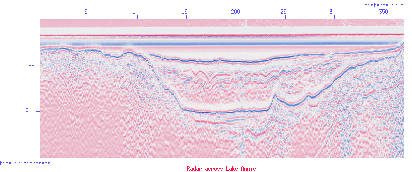
Seismic Unix image of ground penetrating
radar (GPR) survey across a small lake.

Seismic Unix image of ground
penetration radar survey across a buried river channel.